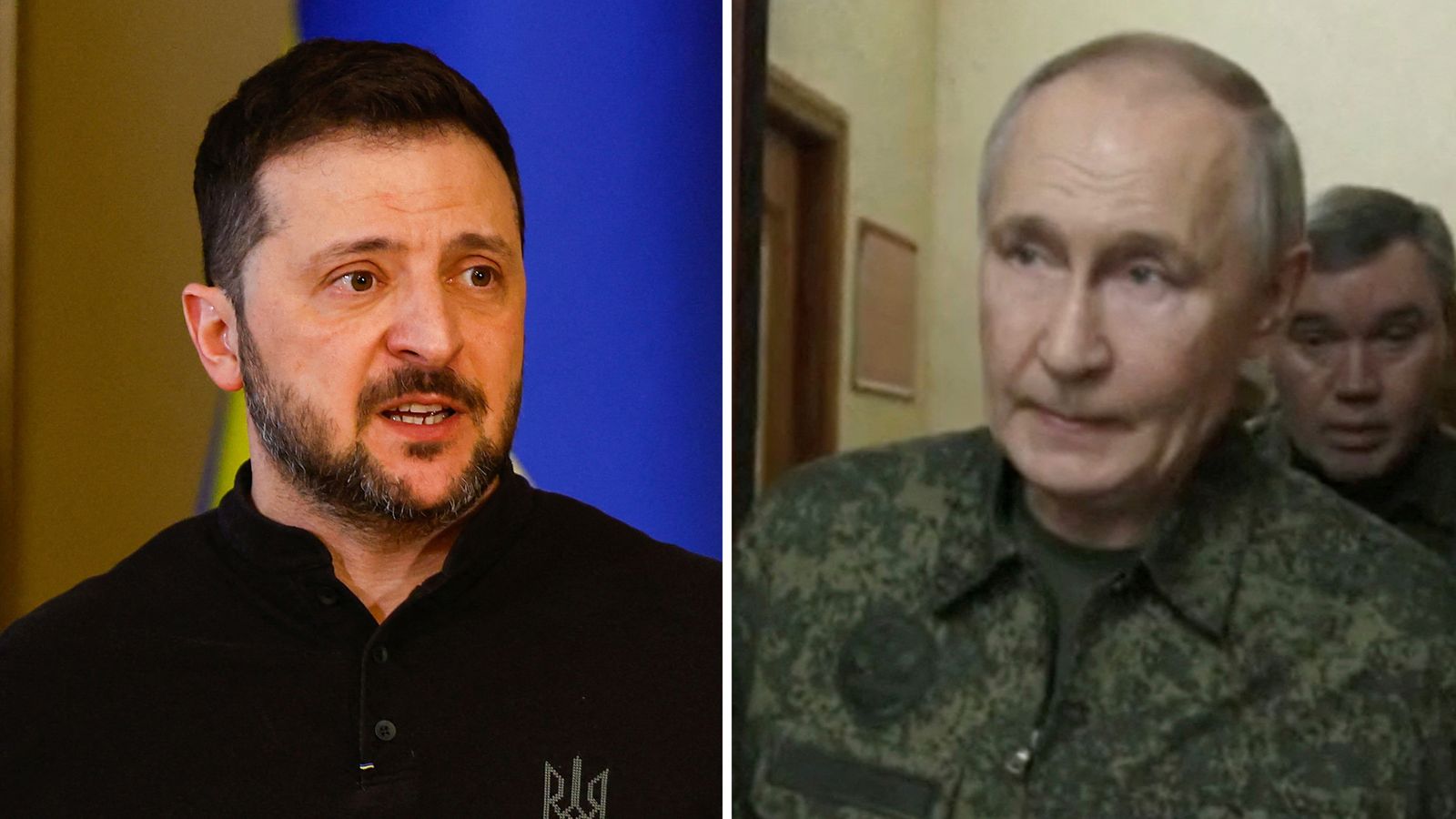By Ivor Bennett, Moscow correspondent
Vladimir Putin was never going to flat out reject the US proposal for a ceasefire, but he also wasn’t going to fully endorse it either. Russia’s agreement, as expected, comes with several strings attached.
The Kremlin leader didn’t specify Moscow’s demands but he did allude to them by saying that any peace deal had to eliminate the “root causes” of the conflict.
It’s become a frequent refrain of his, and shows that Moscow’s maximalist position hasn’t changed. By “root causes”, the Russian president is referring to NATO’s eastward expansion, which he blames as the catalyst for the war in Ukraine.
It’s a very clear indication that his agreement to a ceasefire relies on getting some kind of security guarantees of his own, eg a promise that Ukraine will never join NATO, or that there’ll never be any European peacekeeping forces from NATO members based in the country in the future.
He also articulated why Moscow is reluctant to agree to an immediate truce, talking at length about his forces’ advances in the Kursk region.
Ukraine’s incursion there has been humiliating for the Kremlin, but their expulsion is finally within reach. Vladimir Putin doesn’t want that opportunity to slip away. By pausing Russia’s offensive, he fears they’ll lose the advantage and give the enemy time to regroup.
Vladimir Putin was, however, careful to thank Donald Trump for his efforts in trying to reach a peace agreement, perhaps wary of any backlash from the White House. But despite that, he still doesn’t appear to be showing any sign of compromise.
So in many ways, it feels like nothing has changed.
